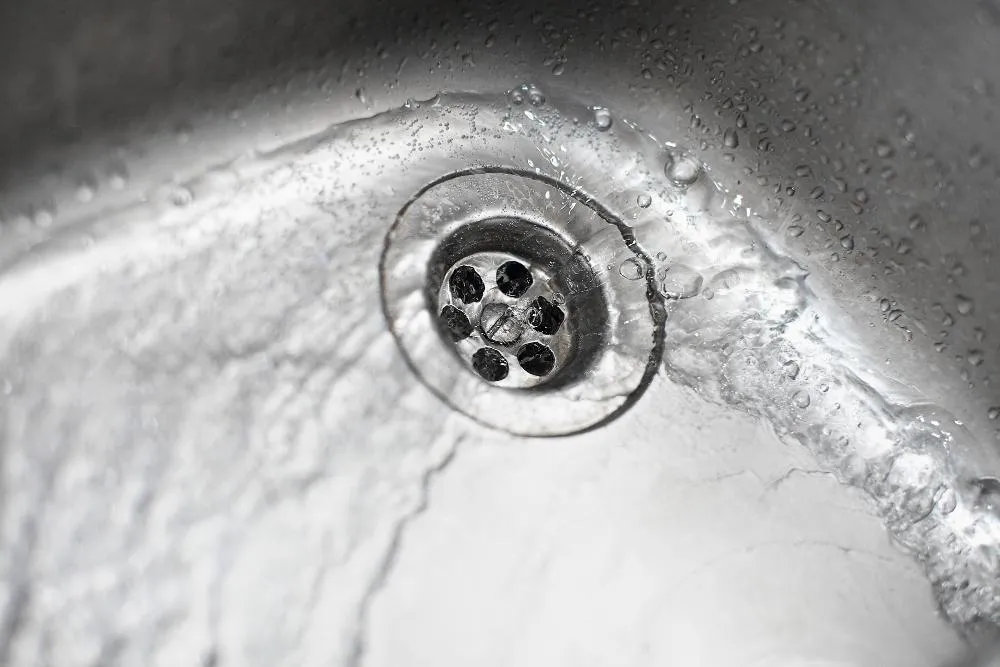
How to Prevent Clogged Drains in Your Kitchen: Tips from Stafford Plumbers
You’re cooking dinner, rinsing off plates, or running the dishwasher—and suddenly, your kitchen sink starts to drain slowly or not at all. Kitchen drain clogs are one of the most common and frustrating plumbing issues faced by homeowners in Stafford, VA.
At C & P Plumbing, we’ve served Northern Virginia since 1994, helping residents avoid costly plumbing emergencies through smart maintenance. In this post, we’re sharing our top expert-backed tips to help you keep your kitchen drain flowing freely—and protect your plumbing system from unnecessary stress.
At C & P Plumbing, we’ve served Northern Virginia since 1994, helping residents avoid costly plumbing emergencies through smart maintenance. In this post, we’re sharing our top expert-backed tips to help you keep your kitchen drain flowing freely—and protect your plumbing system from unnecessary stress.
Why Kitchen Drains Get Clogged
Before jumping into prevention, it helps to know the main culprits behind kitchen clogs. The majority of kitchen drain blockages come from just a few everyday habits.
Common causes include:
Grease and fats: These solidify inside pipes, trapping other debris
Food scraps: Small bits of pasta, rice, eggshells, or coffee grounds can build up over time
Soap scum and detergent residue: These combine with grease to form tough buildup
Foreign objects: Stray items like sponge pieces or packaging can cause serious blockages
Knowing these causes helps you stop clogs at the source. Let’s walk through what you can do daily, weekly, and monthly to prevent kitchen drain issues.
Tips to Prevent Clogged Kitchen Drains
These simple and proven strategies will dramatically reduce your risk of clogs and keep your kitchen sink draining like it should.
1. Use a Drain Strainer
Place a mesh strainer over your sink drain to catch food particles and prevent them from entering your pipes. Make it a habit to empty the strainer into the trash after every use.
2. Never Pour Grease Down the Sink
Grease is the number one enemy of kitchen plumbing. When poured down the drain, it cools and solidifies, causing major clogs.
Instead, let grease cool and solidify, then scrape it into the trash. Or, pour it into a sealed container for proper disposal later.
3. Rinse With Hot Water After Every Use
Running hot water for 15–30 seconds after using your sink helps flush out residual oil, food particles, and soap. This simple habit prevents buildup and keeps your pipes clear.
4. Avoid Overloading the Garbage Disposal
A garbage disposal is a helpful tool, but it’s not meant for everything. Avoid putting the following down your disposal:
Fibrous foods like celery or corn husks
Starchy foods like pasta or potatoes
Bones, coffee grounds, or eggshells
Feed the disposal gradually and always run cold water during and after use.
5. Clean Your Drain Monthly (The Natural Way)
Skip chemical drain cleaners, which can corrode your pipes. Instead, use this natural cleaning method once a month:
Pour 1/2 cup baking soda into the drain
Add 1/2 cup vinegar
Let it sit for 15–20 minutes
Flush with boiling water
This helps break down buildup and neutralizes odors.
6. Schedule Professional Drain Cleaning Annually
Even if you follow perfect habits, some buildup is inevitable over time. We recommend having your drains professionally cleaned once a year, especially if your kitchen sees heavy use. A plumber can perform hydro-jetting to safely clear out gunk and restore proper flow.
Conclusion: Keep Your Kitchen Flowing Smoothly
Kitchen clogs aren’t just an inconvenience—they can lead to expensive plumbing repairs and water damage if left unchecked. By understanding what causes clogs and adopting a few smart daily habits, you can keep your kitchen plumbing in top condition all year long.
If your sink is draining slowly or you want to schedule preventive drain cleaning, reach out to a local plumbing expert. At C & P Plumbing, we’re proud to help Stafford homeowners maintain healthy, reliable plumbing systems.